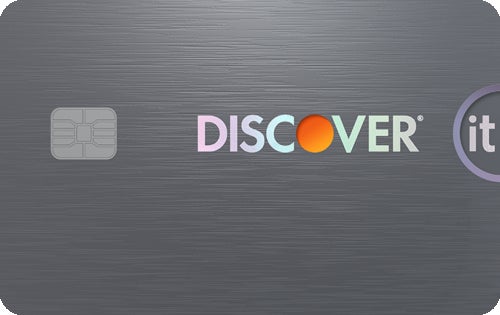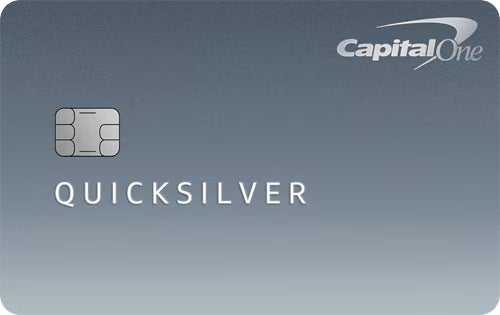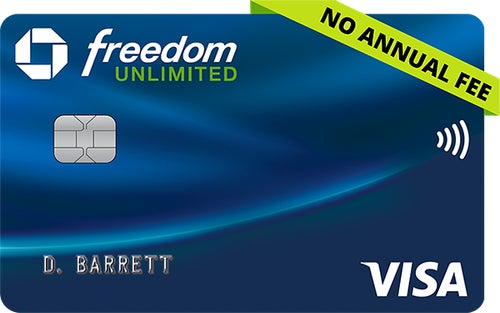Summary
Before you decide on a credit card you’d like, you should get a better idea of the approval process and how your credit score can affect it. Be sure to do your research to increase your chances of getting approved.
The content on this page is accurate as of the posting date; however, some of our partner offers may have expired. Please review our list of best credit cards, or use our CardMatch™ tool to find cards matched to your needs.
Whether you’re eager to build your credit score, start earning rewards, pay down a balance with an intro APR or find an emergency payment method, there are plenty of reasons to apply for a credit card.
But what happens if you aren’t approved? Well, you won’t receive the card you wanted, and your credit score may also be temporarily damaged in the process, thanks to the hard pull on your report from the application.
To prevent this, you should carefully consider your approval odds, as well as whether the card is right for you, before applying for a credit card. With a little research and planning, you can boost your chances of finding a card that matches your lifestyle and of being approved.
Know your credit score
The first step to applying for a credit card — before you even begin researching specific products — is to know your credit score. Your credit score is a three-digit number that reveals your creditworthiness as a borrower. The higher your score, the more likely you exercise good credit habits. The lower your score, the more likely that you use credit irresponsibly.
It’s in the lender’s best interest to lend credit to a more responsible cardholder with a higher likelihood of repaying their debts. That’s why it’s important to know where you stand in a lender’s eyes, so you can estimate your approval odds for a card.
There are plenty of free services available online to keep track of your credit score. In fact, many credit card issuers offer free access to your score. You can also pull a full copy of your credit report from each of the three major credit bureaus on a weekly basis at AnnualCreditReport.com.
Once you have a better idea of your credit profile, you can take a look at products designed for your credit range.
Find a card that matches your credit range
Once you know your credit score and understand the factors that make up your score, you can identify what credit score range you fall in. This plays a huge role in determining which cards you can qualify for.
Because the FICO score is used by 90 percent of lenders, it’s best for you to stay aware of your FICO score when shopping around for a credit card.
FICO credit score ranges
| Credit range | Score range |
|---|---|
| Poor | 300–579 |
| Fair | 580–669 |
| Good | 670–739 |
| Very Good | 740–799 |
| Excellent | 800–850 |
Your likelihood of being approved for a specific credit card depends on the range you fall into. Different card offerings are designed for different kinds of customers. By choosing a card built for cardholders in your credit range, you maximize your chances of being approved.
Top cards for each range
Below are the ideal cards for each FICO credit range.
| Poor/limited credit | Fair/good credit | Very good/excellent credit |
|---|---|---|
 |  |  |
| 2% cash back at gas stations and restaurants on up to $1,000 in combined purchases each quarter, then 1% | 1.5% cash back on every purchase, every day | 5% cash back on purchases of travel through Chase Ultimate Rewards® and Lyft (through March 2025) |
| 1% cash back on all other purchases | 5% cash back on hotel and rental car reservations made through Capital One Travel | 3% cash back on drugstore purchases and dining at restaurants |
| Matches all your cash back at the end of your first year | 1.5% cash back on all other purchases |
Looking for cards that match your credit range? Check out our favorites below.
- Best cards for users with a poor score
- Best cards for users with a fair score
- Best cards for users with a good score
- Best cards for users with an excellent score
Check for prequalified offers
If you’re worried about your approval odds, you can check for personalized credit card offers using tools like CardMatch™. That way, you’ll know if you qualify before you apply for a credit card and trigger a hard credit inquiry.
Additionally, some issuers have tools on their websites that allow you to screen prequalified offers:
- American Express prequalified offers
- Bank of American prequalified offers
- Capital One prequalified offers
- Citi prequalified offers
Consider building your credit before applying
If the card you were hoping for is just out of reach, you might be better off taking some time to build your credit score before you apply. You don’t want to take the chance of applying, which could lower your score, only to be denied approval for the card.
Keep in mind that your credit score is effectively a snapshot for lenders to see how you manage your debt. Usually, the higher your credit score is, the better your chances are of qualifying for credit products as well as receiving the most favorable terms.
If you’re looking to improve your credit score, here are some steps you can take:
- Pay your bills on time: Your payment history makes up 35 percent of your FICO credit score. Even one late payment that’s at least 30 days past due can cause serious damage to your credit.
- Keep your credit card balances low: Your credit utilization ratio — how much of your available credit you’re using — accounts for 30 percent of your credit score. Some recommend keeping your revolving credit balances below 30 percent of your credit limits, but really the lower the better.
- Review your credit reports: You can get free credit reports from the three major credit bureaus at AnnualCreditReport.com. Check your credit report carefully for any erroneous or fraudulent information. If you come across incorrect information, file a dispute with the credit bureaus to have it removed.
- Become an authorized user: Ask a close relative with a good credit history to add you as an authorized user on one of their credit cards. Even if you don’t actually use the account or have a physical card, you’ll benefit when the primary account holder makes on-time credit card payments. Their positive payment history will help build your payment history as well.
Ensure your application is competitive
When it’s time to actually fill out a card application, make sure your information is accurate and complete. When you list your estimated income, don’t forget to include any side money you earn.
Avoid applying for too many credit cards at once. Beyond affecting your credit score from multiple hard inquiries, applying for too many cards in a short period of time signals to issuers that you’re desperate for credit and making risky investments.
Another way to improve your chance of getting approved for a credit card is to apply for credit cards designed for applicants with your credit score. For example, the Capital One Platinum Credit Card is geared toward fair credit users. It has no rewards structure, charges no penalty APR and automatically reviews your account for a higher credit limit after six months of on-time payments. Because the card’s features are relatively limited, the lender would feel better about issuing this card to consumers with fair credit.
What to do if your application is denied
If you’re denied a credit card, it can be tempting to immediately try again with a different card. Before you do, it’s essential to determine why your application was denied, so you can resolve potential issues with your credit.
When a lender denies your credit due to information it discovers in your credit file, it’s required by law to send you a letter of explanation, called an “adverse action letter.” This letter should provide you with the name of the credit bureau that provided the credit report and up to five reasons that led to its decision to deny you. For example, the lender might list reasons such as “high credit utilization ratio” or “late payments” that influenced its decision.
The rejection notice will say you’re legally entitled to a free copy of your credit report. One concrete action you can take is to review your credit — looking for the issues mentioned in the lender’s letter to know what in your credit report you can work on.
You could also contact the card issuer by phone and talk with a credit specialist. At the very least, you should be able to get more information about the lender’s decision. And while there’s no guarantee of approval, you may be able to state your case and achieve a positive result.
Bottom line
The most important thing you can do to boost your chances for approval when you apply for a credit card is to do your research. Make sure you know your credit score to determine which cards you qualify for and whether the card’s benefits are best for you.
Then, you can take advantage of tools like CardMatch to see which cards you may be eligible for before you apply. Keep in mind that just because you aren’t prequalified for a card doesn’t mean you won’t be approved.
*All information about the Apple Card has been collected independently by CreditCards.com and has not been reviewed or approved by the issuer.
Editorial Disclaimer
The editorial content on this page is based solely on the objective assessment of our writers and is not driven by advertising dollars. It has not been provided or commissioned by the credit card issuers. However, we may receive compensation when you click on links to products from our partners.


